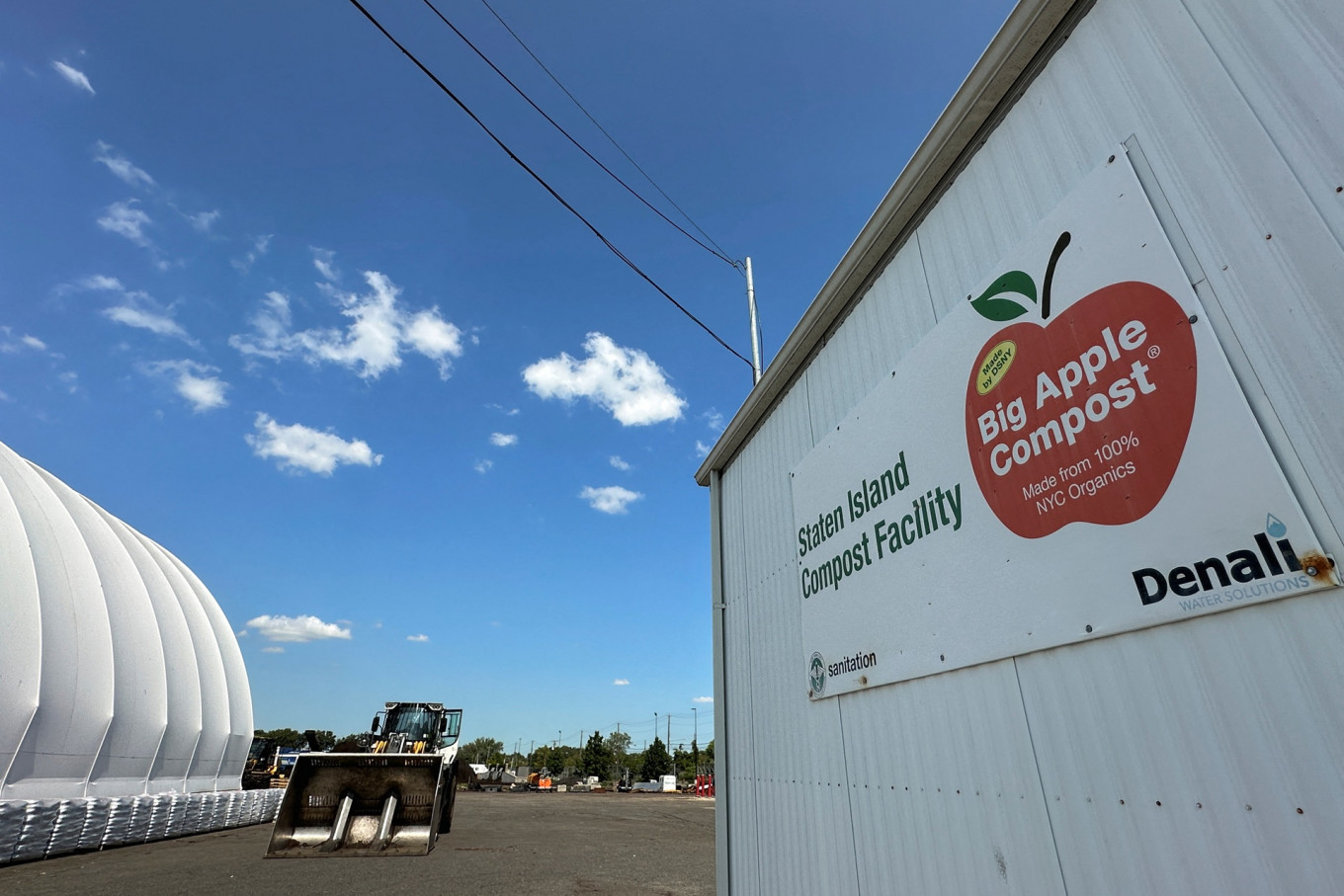Popular Reads
Top Results
Can't find what you're looking for?
View all search resultsPopular Reads
Top Results
Can't find what you're looking for?
View all search resultsHow New York turns millions of pounds of food waste into 'black gold'
Nationwide, food scraps and yard waste are the largest share of household trash, according to the Natural Resources Defense Council.
Change text size
Gift Premium Articles
to Anyone
W
atermelon rinds, greasy pizza boxes, and yard trimmings. In many cities, these items would head straight to a landfill. But in New York, the United States, they are the raw ingredients for something surprisingly valuable: "black gold."
"We're making this awesome compost that we can use throughout the city and improve soil health," said Jennifer McDonnell, Deputy Commissioner for Solid Waste Management at the New York City Department of Sanitation.
At the Staten Island Compost Facility, managed by Denali Water Solutions, landscaper waste has long been processed, but it now also handles residential organic waste. On an average day, the facility takes in 100 to 150 tons of organic material, going up to 250 tons when leaf fall is heavy.
Upon arrival, the waste is shredded, screened, and transferred into aerated static pile bunkers where composting begins. The piles heat up to over 100 degrees Fahrenheit (37.8 degrees Celsius), hot enough to kill pathogens and weed seeds.
Over the course of several weeks, fungi, bacteria, and insects break down the material. After curing and screening, the end product forms a dark, nutrient-rich compost.
The city sells some to landscapers and distributes the rest free of charge to residents, schools and community gardens.
"We've given out, we think, almost 6 million pounds of compost to the residents of New York City this year," McDonnell said. The compost helps improve soil health, manage stormwater, and keep city greenspaces thriving.
Nationwide, food scraps and yard waste are the largest share of household trash, according to the Natural Resources Defense Council. When sent to landfills, they generate methane, a potent greenhouse gas.
"If we want to take a bite out of the climate crisis, we've got to get our food scraps out of landfills and into composting," said Eric Goldstein, New York City Environment Director at the council.
The city's organics collection program requires all residents to separate food scraps, food-soiled paper, and yard waste from trash. While enforcement was paused earlier this year, it is expected to resume in 2026.











